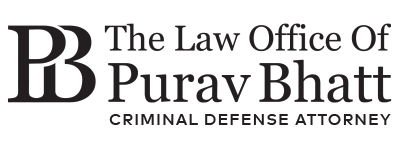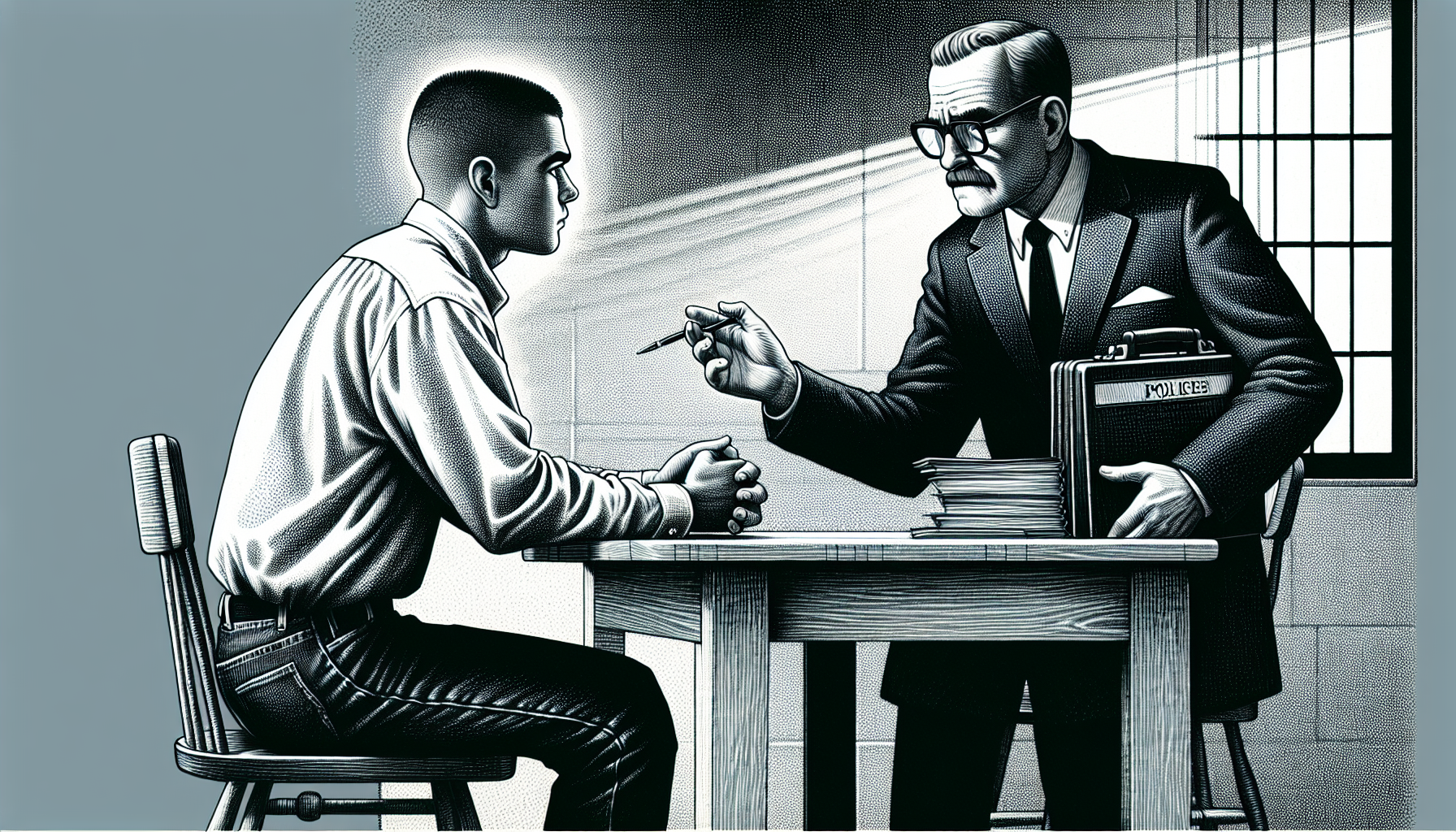Facing a misdemeanor in Chicago? You need a seasoned Chicago misdemeanor lawyer to safeguard your rights and mitigate potential penalties. This guide breaks down the nuances of misdemeanor offenses and outlines the strategies that a defense attorney employs to advocate for you effectively in the criminal justice system.
Key Takeaways
- Misdemeanors in Illinois are classified into three categories: Class A (most severe), Class B, and Class C, each carrying potential penalties such as jail time, fines, and community service, and having lasting consequences on an individual’s life.
- An experienced criminal defense attorney is crucial for individuals facing misdemeanor charges, as they provide expertise in legal procedures, negotiation with prosecutors, and case evaluation, which can lead to reduced charges or alternative sentencing.
- The legal process from arrest to trial for misdemeanors in Chicago is multifaceted, involving stages such as arraignment, discovery, and if necessary, trial. Effective legal representation during interrogations, preliminary hearings, and trial preparation can significantly impact the outcome of the case.
👉Also Read: Navigating Legal Complexities: Chicago IL Criminal Lawyer Strategically Defends Clients’ Rights
Understanding Misdemeanors in Chicago
In the realm of criminal law, not all offenses are created equal. Misdemeanors in Illinois are often first offenses and, if repeated, may escalate to felony charges. The seriousness of the offense determines the class of a misdemeanor, distinguishing between Class A, B, and C misdemeanors.
While felony offenses often make headlines, misdemeanors should not be taken lightly. If convicted of a misdemeanor, the potential penalties may involve:
- Prison sentence of up to one year
- Fines
- Probation
- Community service
It’s essential to have reliable legal representation in the face of such penalties.
Class A Misdemeanors
Among the classes of misdemeanors, Class A misdemeanors represent the most severe type in Illinois. A prime example is domestic violence, a Class A misdemeanor offense. These offenses can lead to significant consequences, including jail time, fines, and protective orders.
The implications of a Class A misdemeanor conviction can be far-reaching, adversely impacting various aspects of an individual’s life. It’s at this juncture that the expertise of an experienced criminal defense attorney becomes invaluable.
Class B Misdemeanors
Moving down the severity scale, we have Class B Misdemeanors, considered mid-level offenses in Illinois. They hold less severity than Class A misdemeanors but still warrant serious consideration.
The maximum penalty for a Class B misdemeanor in Illinois can include up to 180 days in jail and a fine of up to $1,500. Navigating such charges without the guidance of an experienced criminal defense attorney can lead to harsher penalties.
Class C Misdemeanors
Class C Misdemeanors are the least serious criminal offenses in Illinois, often referred to as misdemeanor crimes. They are more severe than petty infractions but less serious than Class A and B misdemeanors.
Despite being the least serious, the maximum penalty for a Class C misdemeanor can still include up to 30 days in jail and/or a fine of up to $1,500. Having an experienced criminal defense attorney can help minimize potential penalties and secure a more favorable outcome.
The Importance of an Experienced Criminal Defense Attorney
Whether you’re facing a Class A, B, or C misdemeanor, the importance of an experienced criminal defense attorney cannot be overstated. They provide a deep understanding of laws and procedural nuances that are crucial when dealing with misdemeanor cases.
A qualified criminal defense lawyer is critical for defendants to be adequately informed of their rights and to comprehend the complex legal process. Purav Bhatt an experienced criminal defense lawyer and a seasoned Chicago criminal defense attorney, carefully crafts his defense approach based on the unique facts of each case, seeking the best possible outcomes for his clients through options like deferred prosecution or jury trials.
The Law Office of Purav Bhatt stands as a leading criminal defense law firm situated in Chicago, IL. As a Chicago criminal defense lawyer, Purav Bhatt is dedicated to providing exceptional representation for those facing criminal charges. With the support of a team of skilled criminal defense lawyers, Purav Bhatt ensures that his clients receive the best possible defense.
Evaluating Your Case
One of the first steps in defending against a misdemeanor charge is case evaluation. An experienced criminal defense attorney in Chicago can assess the strengths and weaknesses of the prosecution’s case and determine the most favorable course of action, including the consideration of plea agreements.
Early engagement of a well-informed attorney can:
- Increase the chances of successful communication with prosecutors
- Result in reduced charges or case dismissal
- Facilitate the client’s navigation through the complexity of criminal justice procedures
- Prevent costly mistakes
Negotiating with Prosecutors
Negotiations with prosecutors play a pivotal role in the outcome of a misdemeanor case. Experienced criminal defense attorneys in Chicago use negotiation tactics such as establishing a lack of criminal intent to influence the prosecutor’s decision for plea deals.
Negotiated plea deals may include alternative sentencing options like supervision, community service, or probation to avoid harsh penalties and offer the defendant a second chance.
Supervision as part of a plea agreement requires the defendant to follow specific court-mandated rules, after which the misdemeanor charge can be dismissed without resulting in a criminal record.
👉Also Read: Winning Strategies: Inside The Courtroom Tactics of Chicago’s Leading Criminal Defense Lawyers
Navigating the Legal Process: From Arrest to Trial
The legal process from arrest to trial is a complex journey. Following an arrest in Chicago, an individual is taken to the local police department for booking and processing, which includes fingerprinting and photographing. Depending on the charges, the arrested person may be required to post bail to be released pending further legal actions.
The criminal justice process involves several key stages, including:
- Arraignment: The defendant’s first court appearance, where they hear the formal charges and are given the opportunity to enter a plea.
- Discovery: The phase where the prosecution and defense share evidence, which may include filing pre-trial motions.
- Trial: If a misdemeanor case goes to trial, it involves evidence presentation, witness cross-examination, and argumentation before a judge or jury.
These stages are important in ensuring a fair and just legal process.
Police Custody and Interrogations
Being in police custody and facing interrogations can be daunting. However, it is advisable to avoid speaking to the police or answering any questions without having an attorney present to protect oneself from self-incrimination or providing evidence inadvertently.
Legal representation during police questioning ensures that an individual can exercise their right to remain silent and avoid self-incrimination. Directly after an arrest, the arrested individual should remain silent and request an attorney, refraining from any statements until legal representation is present.
Preliminary Hearings and Arraignment
Preliminary hearings and arraignment are crucial phases in the legal process. In Chicago, preliminary hearings determine if there is probable cause for the arrest in felony cases, but are not typically used for misdemeanor charges.
If the court finds probable cause at a preliminary hearing, the case moves to arraignment where the defendant is formally charged, usually within two weeks of the preliminary hearing. At the arraignment, the defendant, with the assistance of an attorney, can enter a plea of guilty, not guilty, or no contest.
Preparing for Trial
Preparing for trial is a meticulous process. During the discovery phase, the defense reviews the prosecution’s evidence, such as police reports, witness statements, and physical evidence. Pre-trial motions may be filed to challenge the admissibility of evidence or to dismiss charges, which are pivotal in preparing a defense.
Effective courtroom advocacy includes challenging the prosecution pre-trial to enhance the defense’s position during plea negotiations. Defense attorneys may use pre-trial preparation to develop a strategic defense, including locating and interviewing witnesses.
Defending Against Specific Misdemeanor Charges
As every misdemeanor case is unique, defense attorneys utilize specialized strategies to defend against common misdemeanor offenses. An integral role of defense attorneys is to challenge the prosecution’s findings and present strong counterarguments in court.
One approach includes disputing the admissibility of evidence and the reliability of witnesses, which could significantly impact the case’s outcome. These legal tactics are crucial in gaining leverage during plea negotiations and can influence the prosecution’s willingness to offer more favorable terms.
Drug Crimes and DUI Arrests
Drug crimes and DUI arrests carry significant consequences if convicted. Defending against these charges often involves investigating the legality of search and seizure procedures that led to drug charges.
For DUI arrests, challenging the field sobriety tests’ accuracy is a common defense approach. Defense strategies for DUI often include questioning the validity of blood or breath tests, which could be affected by calibration errors or sample mishandling.
Domestic Violence and Assault
In cases of domestic violence and assault, defense attorneys often focus on demonstrating the absence of corroborating evidence or disputing the veracity of the alleged victim’s testimony.
Common defenses for battery charges include:
- Assertions of self-defense
- Protection of others
- Property defense
- Explicit consent by the involved parties
- Demonstrating a lack of intention to cause harm.
White Collar Crimes and Fraud
White-collar crimes and fraud cases require a different set of defense strategies. Experienced misdemeanor lawyers in Chicago often tackle these complex cases by arguing against the supposed financial losses or intent to defraud.
In white-collar criminal cases, strategies often include:
- Demonstrating the accused’s continued value to their profession
- Affirming their eligibility for ongoing or future employment
- Taking proactive steps to minimize disruptions to the client’s career, such as seeking to avoid conviction, reduce sentences, or seal records when possible.
Consequences of a Misdemeanor Conviction
A misdemeanor conviction doesn’t just end with the sentence served. It results in a permanent criminal record that could have enduring effects on an individual’s life. Convictions can significantly limit employment opportunities and may lead to ineligibility for professional licenses or certifications.
A misdemeanor charge, a type of criminal charge, and a less severe criminal offense can immediately jeopardize personal liberty, for example, through potential jail time, and can harm an individual’s reputation. Misdemeanor or felony charges often come with financial penalties that can include fines, court costs, and the possible loss of driving privileges, impacting financial security.
Criminal Record and Employment
A criminal record can be a significant roadblock in securing employment. However, under the Illinois Human Rights Act, individuals with misdemeanor convictions are protected from being unfairly dismissed, disciplined, denied employment, or promotions based solely on their conviction record.
Before making a decision based on a misdemeanor, employers are expected to perform an interactive assessment with the individual, weighing several factors such as the nature of the offense and time elapsed since the conviction. Despite these protections, misdemeanor convictions can negatively affect job prospects as employers may consider the nature and severity of the offense when evaluating a candidate’s suitability for a position.
Fines, Jail Time, and Probation
Apart from the impact on employment, misdemeanor convictions can also lead to fines, jail time, and probation. Sentencing for misdemeanors can include options such as conditional discharge, leading to no jail time but may involve community service; probation with or without jail time; or court supervision, which avoids a conviction on record.
For misdemeanors, the maximum punishment includes:
- Class A: up to 364 days in jail and/or a fine of up to $2,500
- Class B: up to 180 days in jail and/or a fine of up to $1,500
- Class C: up to 30 days in jail and/or a fine of up to $1,500
The specific punishment will be based on the discretion of the judge.
👉Also Read: Navigating Legal Minefields: Chicago Criminal Defense Attorney Secures Victory For Client
Contact Purav Bhatt Today for Your Consultation!
In conclusion, while misdemeanor charges may appear less severe than felonies, they still carry substantial penalties that can disrupt your life. From job prospects to personal relationships, a misdemeanor conviction can have far-reaching consequences. That’s why it’s crucial to enlist the services of an experienced criminal defense attorney. They can provide valuable guidance, challenge the prosecution’s case, and work towards minimizing the adverse effects of a misdemeanor charge.
If you’re confronting misdemeanor charges in Chicago, rely on the strategic prowess of Purav Bhatt, a prominent misdemeanor defense attorney at The Law Office of Purav Bhatt. With more than ten years of experience in Chicago’s criminal justice system, Attorney Purav Bhatt is committed to protecting your rights and vigorously pursuing the most favorable outcome for your case.
Contact Purav Bhatt today at 773-791-9682 or reach out online to arrange your confidential consultation.




